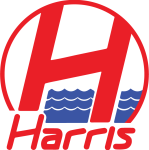Water service lines refer to the pipes that connect a property to the main water supply, delivering potable water for domestic use. Many municipalities use polyvinyl chloride (PVC) pipes for water distribution systems due to their affordability, ease of installation, and resistance to corrosion. However, New York City restricts the use of PVC pipes in service lines to protect those who rely on its water distribution network. Find out why the city has cracked down on PVC and adopted copper pipes for potable water delivery.
Environmental Concerns
NYC is apprehensive about the lasting effects PVC materials could have on water quality and the environment, prompting the decision to restrict its use. PVC pipes may leach harmful substances into the water supply over time. One of the significant concerns surrounding PVC pipes is the potential leaching of vinyl chloride into the water supply. Vinyl chloride can contaminate water sources, leading to adverse impacts on aquatic life and ecosystems.
To mitigate these risks and protect the city’s water resources, the city has implemented measures to limit the use of PVC pipes in service lines. By doing so, the city aims to ensure the safety and sustainability of its water supply for future generations.
Regulatory Standards
NYC has established specific guidelines and building codes that govern the materials and practices used in water infrastructure projects. These regulations ensure consistency, safety, and adherence to best practices.
NYC regularly updates its standards to ensure all water infrastructure projects maintain the integrity of the city’s water system. These standards protect public health and safety and promote uniformity in construction practices and materials.
Hiring local water service contractors helps ensure compliance with guidelines and building codes governing water infrastructure projects. Reputable, local contractors know the regional regulations and requirements, which helps guarantee that service lines meet the necessary standards for safety and quality.
Public Health Considerations
Just as the potential leaching of harmful substances can harm the environment, PVC pipes may cause chemical exposure that harms public health. To minimize any potential health risks and ensure the delivery of safe drinking water to its residents, NYC has chosen to restrict the use of PVC pipes in service lines.
By opting for alternative materials that have been thoroughly tested and proven safe, the city can provide peace of mind to its citizens regarding the quality of their tap water. NYC has adopted K copper as the primary materials in its service lines. Copper service lines are safe for water delivery due to copper’s natural antimicrobial properties that inhibit the growth of bacteria and other contaminants in the water. Additionally, copper is a durable material that does not corrode easily, ensuring long-term reliability and maintaining water quality during delivery.
Environmental concerns, public health considerations, and the need for up-to-date regulatory standards drive NYC’s restriction on the use of PVC pipes in service lines. By opting for copper service lines over PVC, NYC aims to safeguard water quality, protect public health, and uphold the integrity of its water infrastructure. This decision reflects a proactive approach to ensuring safe and sustainable water delivery for the city’s residents.




















